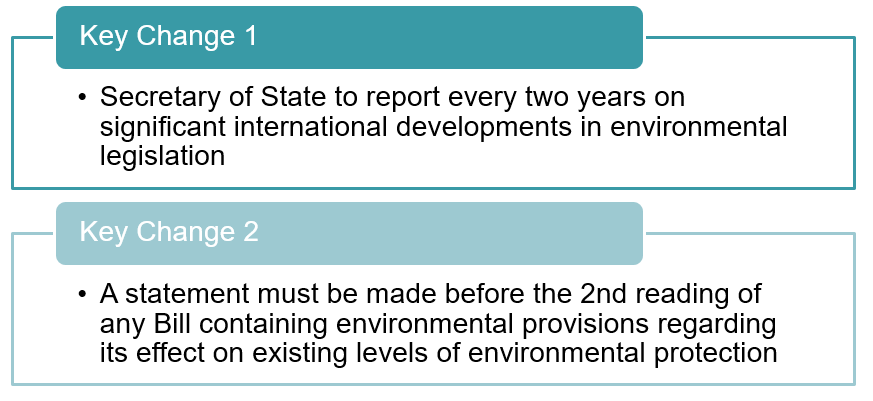The Environment Bill 2020 was re-introduced into the House of Commons last week. It is an updated version of the bill published in October 2019 that was withdrawn due to the General Election (see here for our blog post on this). If adopted, it will be the most substantial piece of primary legislation on the environment since 1995.
The Bill deals with governance gaps resulting from Brexit by establishing a new Office for Environmental Protection (OEP) to hold Government and public authorities to account, puts the Government’s 25 year environment plan on a statutory footing, requires Government to have regard to environmental principles in policy making and mandates the setting of specific national targets in certain areas such as air quality. It also contains wide powers to make regulations by secondary legislation to implement key reforms in waste and recycling, the requirement for developers to demonstrate biodiversity net gain and introduces the ability to place conservation covenants on property titles.
There have been some, albeit minimal, changes from the previous version of the Bill. Notably, this version does not include the clear commitment not to allow UK environmental standards to backslide from the current levels of environmental protection enshrined in EU law (so –called “non-regression”), which many have been hoping for. We expect that to be a key area of focus as it makes its way through Parliament.
Key changes from previous Environment Bill
Next steps?
Once the Bill has received its second reading (date to be announced), a date will be set for it to progress to the committee stage where a committee of MPs will discuss the detail. The committee will be able to hear evidence from experts and interest groups. See here for more on how the committee stage works. Amendments to the Bill proposed by the committee will then be reported to Parliament and debated.

Look out for our updates and analysis as the Environment Bill progresses, and please contact us if you have any questions.
For more information please contact:
Key contacts
Disclaimer
The articles published on this website, current at the dates of publication set out above, are for reference purposes only. They do not constitute legal advice and should not be relied upon as such. Specific legal advice about your specific circumstances should always be sought separately before taking any action.




